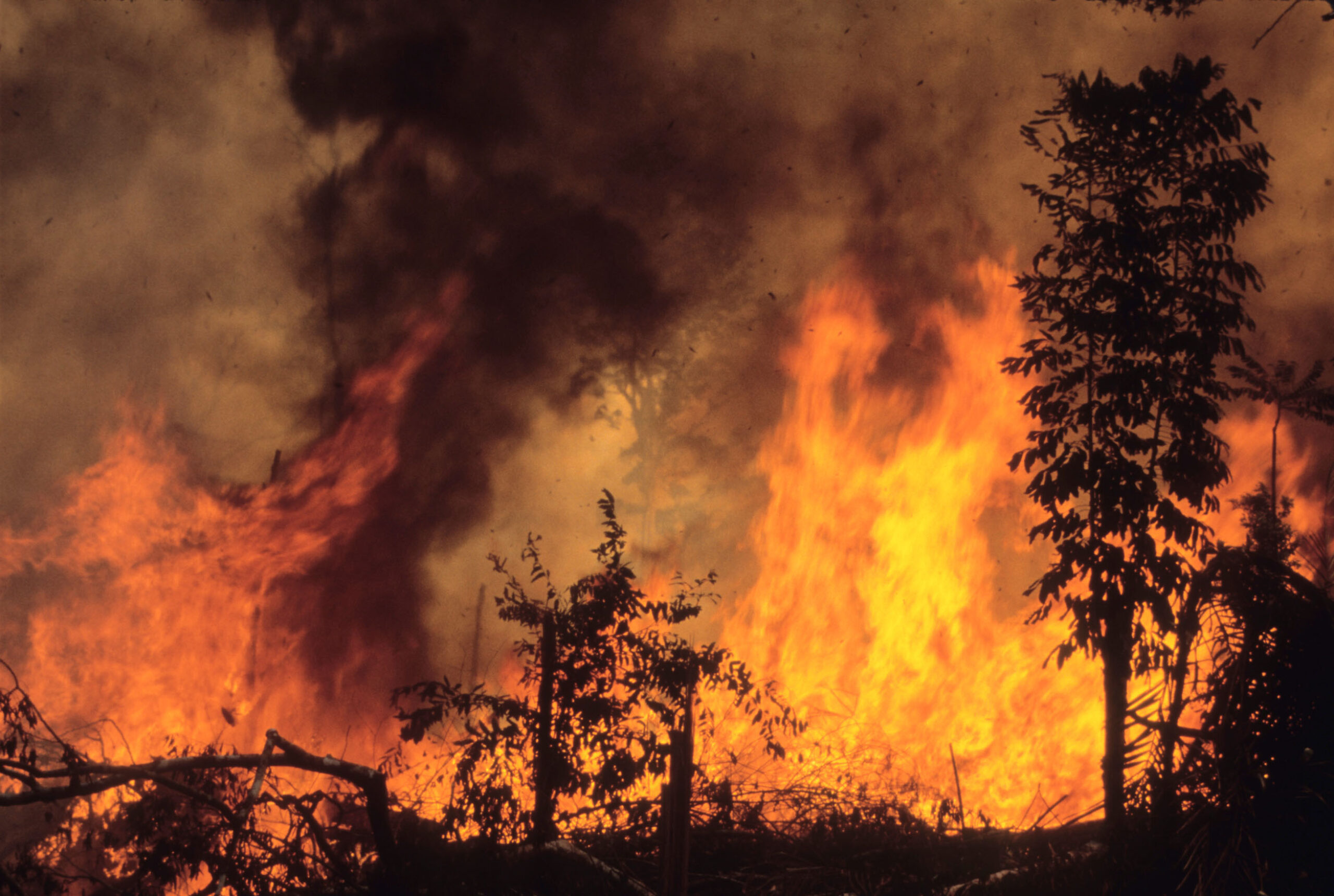
Last week, Greenpeace launched a campaign urging Tesco to face up to the realities of industrial meat and its role in destroying the Amazon rainforest and other South American forests.
Over 100,000 people signed up, and all this public pressure seems to have Tesco rattled.
Tesco has started running social media adverts claiming that they support Greenpeace’s call to stop deforestation, insisting that they do not buy meat from Brazil. They also claim that by the end of this year they will have hit their ‘target of zero deforestation for soy animal feed through certification’.
If you’ve seen these ads, you might feel confused about what’s really happening, and what Tesco is doing wrong. So let’s take a closer look.
Tesco have no idea where their soya comes from
When a supermarket says their products are ‘zero deforestation’, that should mean no forests were cut down to make those products. But sadly that’s not the case.
To understand why, we need to learn a bit about how soya is grown, bought and sold. If this sounds a little confusing, it’s because it is. And Tesco is counting on people not caring enough to read up on this – so they can continue business as usual.
Here’s how it all fits together. Most soya is sold by giant traders on a global market – and about 90% of it goes into animal feed.
The problem is that the supply of segregated soy is miniscule. The good stuff and the bad stuff is all mixed together. That means Tesco and other companies basically have no idea where their soya came from, or how it was grown.
To get around this, companies buy ‘credits’. This involves paying money to sustainable farming projects for every tonne of ‘who knows where this came from’ soya they buy.
So when Tesco has targets based on credits, this just means they’re paying to ignore their contribution to the problem. Supporting sustainable farming is no bad thing, but it’s not the same as stopping deforestation.
So while Tesco may not buy meat from Brazil, much of the chicken and pork on their shelves is fed on Brazilian soya, and produced by companies owned by Amazon rainforest destroyers.
These companies are Moy Park and Tulip, two UK meat producers who are owned by JBS. JBS is the world’s biggest meat processor and has been repeatedly linked to deforestation in the Amazon, as well as human rights violations.
So Tesco are hiding behind confusing supply chains as a way to carry on business as usual, while telling their customers they’re on track to meet their 2020 zero deforestation targets.
Much like BP, Shell and Easyjet’s unreliable and ineffective carbon offsetting schemes, these supermarket corporations are trying to distance themselves from environmental damage their products cause, through business technicalities they think most people will never find out about. But we can’t let them get away with it.
Truly sustainable soya is (very) hard to find
The only way for companies to know that their soya does not come from deforestation is to trace it back to the farm, and monitor that farm with maps and satellite imagery. The next best thing is to set up a separate ‘clean’ soya supply from farms that are checked and certified by a third party. But this is still by no means perfect.
Tesco told us that 1% of their soya animal feed is certified in this way, and this isn’t likely to improve in the near future. Multiple companies say the market won’t improve enough to provide physically certified soya, in the quantities Tesco needs, any time soon.
And because our climate is already changing rapidly, we need to actively be restoring forests and other important ecosystems – not burning the Amazon for cattle-rearing and turning South American forests into soya farms.
There’s simply not enough land to grow the volumes of soya needed to meet the growing global meat demand without destroying more forests.
Decision time for Tesco
Chances are, Tesco’s bosses do care about the Amazon and want to do the right thing, but they’re in a difficult position. Right now, the truth is that you can’t sell industrial meat on a Tesco-like scale without being involved in deforestation.
So rather than trying to buy their way out of the problem, Tesco needs to make a serious business decision to reduce their dependence on the global industrial meat system. That means dropping forest destroying suppliers, and replacing half the amount of meat they sell with healthy, affordable plant-based alternatives by 2025.
